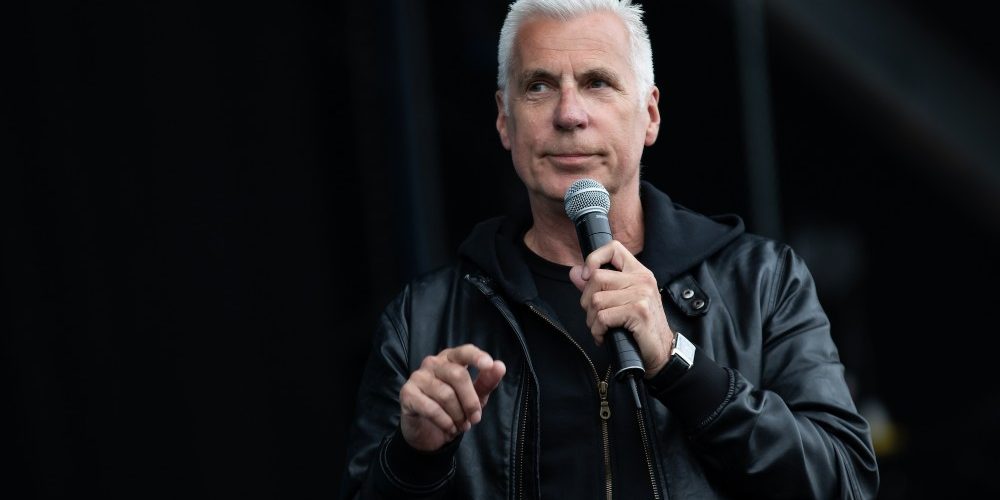Isle of Wight Festival promoter John Giddings apologises for “lady rock band” comments
Isle Of Wight Festival promoter John Giddings has apologised after asking for suggestions of “lady rock bands” to add to the festival’s line-up.
After tweeting the request, the festival organiser was criticised on social media for his choice of wording.
“Please reassess your wording/thought process. I appreciate you are (hopefully) trying to offer women musicians opportunities, but this should be standard, not a token gesture,” Twitter user @okaychloegreen wrote. “Also, ‘lady rock’ is really demeaning.”
Giddings quickly apologised for his “wrong choice of words” and clarified that he wasn’t “using the term ‘lady rock’”. “I agree, it would be demeaning,” he said. “Apologies that it came out like that.”
any lady rock bands out there ?
we have one slot left to fill on the river stage @IsleOfWightFest '21— John Giddings (@JohnGiddings01) August 20, 2021
Later, he tweeted again with a more gender-inclusive take on his original message, noting the festival wanted to “add more non-cis male acts to our line-up”.
we would like to add more non-cis male acts to our lineup, please send your suggestions for the river stage @IsleOfWightFest 21 cheers
— John Giddings (@JohnGiddings01) August 21, 2021
Despite his clumsy choice of words, Giddings later confirmed that his request had been successful in some ways. “After f*****g it up completely (again – so sorry) I am pleased to say that we have over 100 applications for the river stage slot @IsleOfWight 21,” he tweeted. “We now need to listen to them and we will back shortly. Thank you!!”
after f*****g it up completely ( again – so sorry.._)
i am pleased to sat that we have over 100 applications for the river stage slot @IsleOfWightFest 21 …we now need to listen to them ,and we will back shortly
thank you !!— John Giddings (@JohnGiddings01) August 22, 2021
In April, campaigners and figures within the music industry warned of the need for “urgent” and shared action to improve gender diversity on festival line-ups. “If you are an established festival, which is likely to sell out year on year, you should be making much more of a commitment to ensure the line-up is balanced,” Laura Davidson, formerly of All Points East and founder of AMIGAS, told NME.
“That means supporting up-and-coming artists to ensure they are getting the opportunities now, and will be playing the bigger slots and possibly headlining in years to come.”
Keychange Project Manager Maxie Gedge added: “More and more, if you don’t make these positive changes then you will get left behind. Audiences aren’t just passive bodies of people, they’re dynamic. They care more and more about accountability and representation. If festivals don’t respond to that, then they will get left behind.”
